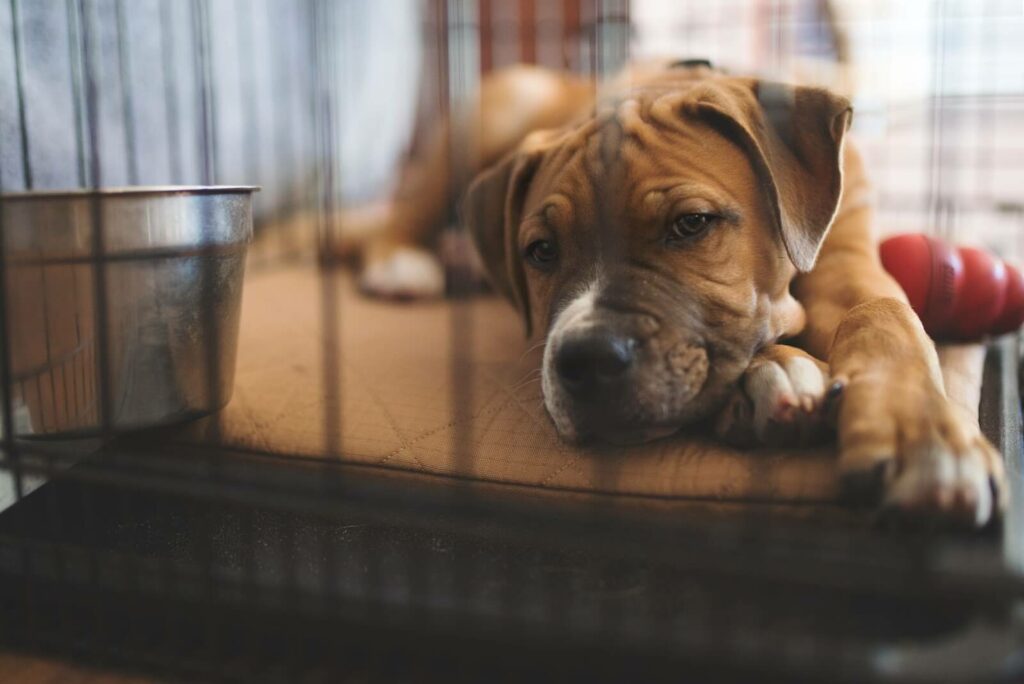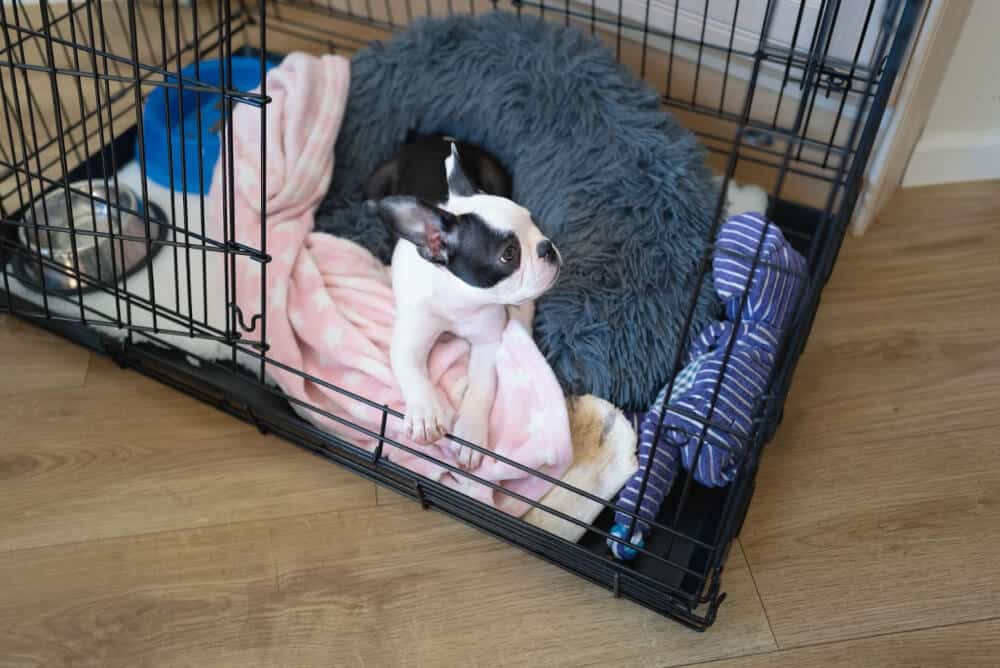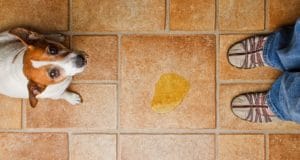Question from Jesica Mcauliff:
I have a 3-month-old pit bull/boxer mix puppy that my husband and I have been crate training. Lilly had been doing really well not soiling her crate, but recently she has been doing it everyday, even if she is only in there for a few hours.
We have tried everything to break her of this habit but nothing works. Please, do you have any advice?
Cesar Millan’s Answer:
Well, Jessica, the first thing you need to get out of your head is that you’ve “tried everything.” If it keeps happening, you haven’t tried everything! What I would ask somebody in your situation is this: when does your puppy go to the crate? Is she tired? Is she not tired? Did she drink water before entering the crate? How long ago did she drink it?
Obviously, if she goes in after drinking, she’s going to have a full bladder. Most people who try to housebreak a puppy only focus on their own needs: “I don’t want my dog to pee in the house.” That’s a human need. Your dog’s need is to go and relieve herself! So if you want to break your dog of this habit, you need to be sure you are being honest and taking responsibility by providing exercise and discipline according to your dog’s needs. After that, soiling the crate can be a very simple problem to rehabilitate.
Make sure Lilly is tired and in a calm submissive state before entering the crate. If she isn’t tired when you put her in there, work her some more. That’s the exercise part. If your dog soils her crate after two hours, then take her out of the crate after an hour and forty-five minutes to allow her to pee. That’s discipline. You show her that you want her to pee somewhere else, and eventually, once her needs are being met, she will learn to wait and she will be able to go for longer and longer periods without soiling her area. Stay calm and assertive!
Cesar Millan
Common Reasons Puppies Have Crate Accidents
Anxiety
Improper Potty Training
Upset Stomach
Crate Size
Blanketing
Disrupted Routine
Manipulation
Health Concerns












